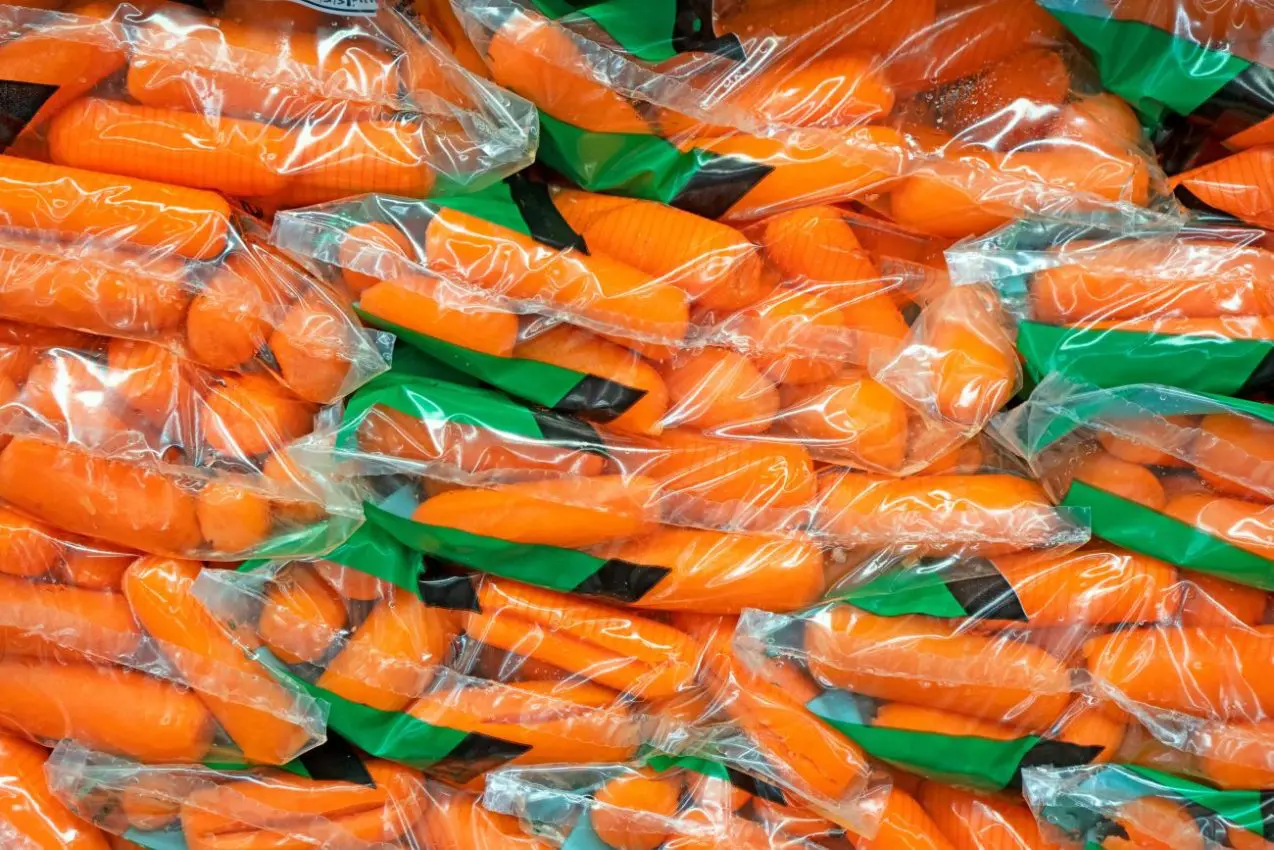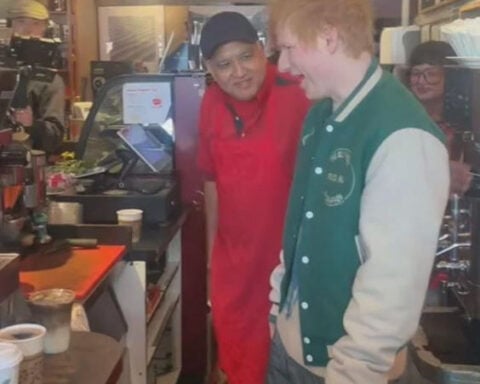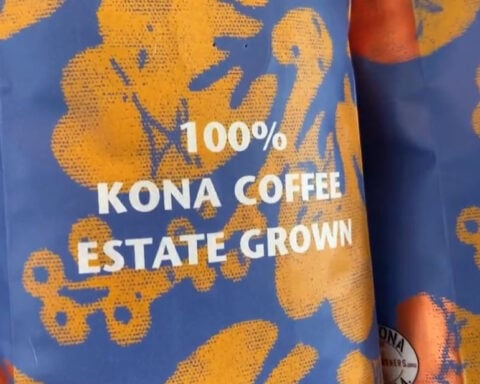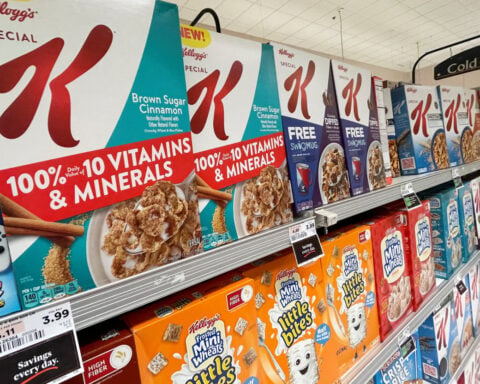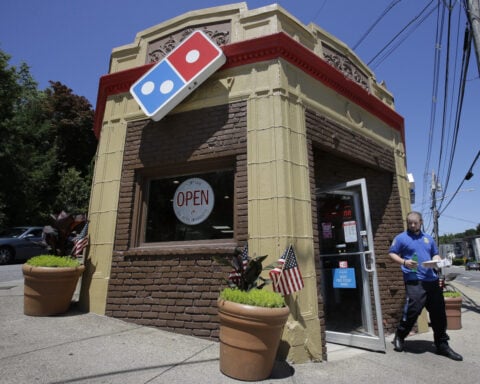The shelves in supermarkets are just a trick. One vocal blogger says the tiny doppelgangers are just made from poor, full-grown rejects so that many of them are the same and are only two inches long. This system might make results more efficient by automating the peeling, cutting, and polishing processes. That being said, the blogger says the finished goods don't have complicated flavors, waste resources, cost too much, and spread false ideas about how great they are through dishonest advertising that makes health halos.
In fact, most tiny vegetables that look like carrots are really just picked baby root vegetables. Most of them come from regular, fully grown carrots that have been cut into uniform two-inch pieces by machines. Advanced cutters and polishers take lumpy candidates and turn them into two-inch cylinders that look strangely perfect. After being made, the "baby cuts" are washed in chlorine before being inspected one last time and packed up without having grown any further.
This streamlined process certainly enables mass outputs meeting consistent sizing ideals. But the blogger contends uniformly processed end products suffer significant taste loss compared to varied fresh full lengths. He urges skeptical consumers conduct side-by-side comparisons, certain the thinner synthetic pretenders will fail to match natural essence. By chasing shelf life over nuance, baby carrot factories sacrifice the exceptional potential of mixed heirlooms boasting unique flavors.
Even more disturbingly, chopped channels obsess over unrealistic specimens from the start, rejecting atypically shaped or sized offerings for juicing rather than snacking. The blogger argues buyers therefore enable poor ethics echoing modern beauty standards programmed to celebrate narrow homogeny. Tattooing “baby” across a bag makes little sense if it takes machinery conforming fully developed carrots into assembly-line replicas sharing only geometrics.
The factories complete this eerie vegetable pageantry by subjecting denuded faux youngsters to potent gas baths combatting potential organisms. But such heavy disinfecting strikes some as overkill given peel removal, absent more pressing public hazards. And they balk at prolific chlorine usage when basic scrubbing or vinegar mitigates most microbes. Nevertheless, the blogger alleges marketers bank on association with sanitation and health to push “baby” carrots as superior snack fare.
Beyond philosophical objections, economics add further fuel against the carrot copies. Simple math confirms substantially inflated pricing despite only modest value additions through cutting assistance. When raw carrots frequently retail around $1 per pound, packaged babies easily run 30-50 percent higher without offering corresponding improvements. Essentially you pay premiums for water loss, mild bleach dousing and beauty-driven selection bias – an unpalatable tradeoff.
Even more discouragingly, thinned products often deteriorate faster into unpleasant textures thanks to greater exposed surface area. The brittle edges end carrots begin drying within bags, developing unpleasant white films due to dehydration. Basic rehydration sometimes restores briefly degraded specimens. But frequently the blogger finds entire packages distressingly rubbery well before suggested expiration dates.
Considering all associated negatives — taste, texture, ethics and economics — the case against bagged baby carrots appears strong from multiple angles. Yet their market share and copycats continue expanding, buoyed by false assumptions of superior health and convenience. In reality, the blogger stresses that typical consumers could procure and prepare fresher, cheaper straight carrots within mere minutes. But pervasive advertising implanting illusory advantages keeps shoppers grabbing plastic packs without second thought week after week.
The blogger doesn’t argue for banning manufactured midget carrots or denying guiltless purchases. But he advocates conscientious objection to drive reformulation, improving integrity, quality, and transparency around carrot production. Because even simple label adjustments explaining origins and processes grants more ethical participation for those supporting current systems. Beyond signaling overlooked issues to bosses, however, he wants open debate challenging reflexive purchase patterns that buried better options.
In the end, the blogger doesn't insist on banning manufactured mini carrots or eating them without feeling bad about it. But he wants people to think more about what they buy and have open conversations that question the automation. He hopes that by shedding light on problems that have been ignored, we can all think again about how modern life tends to value aggressive artificial homogenization in a broader sense.

 Trump has begun another trade war. Here's a timeline of how we got here
Trump has begun another trade war. Here's a timeline of how we got here
 Canada's leader laments lost friendship with US in town that sheltered stranded Americans after 9/11
Canada's leader laments lost friendship with US in town that sheltered stranded Americans after 9/11
 Chinese EV giant BYD's fourth-quarter profit leaps 73%
Chinese EV giant BYD's fourth-quarter profit leaps 73%
 You're an American in another land? Prepare to talk about the why and how of Trump 2.0
You're an American in another land? Prepare to talk about the why and how of Trump 2.0
 Chalk talk: Star power, top teams and No. 5 seeds headline the women's March Madness Sweet 16
Chalk talk: Star power, top teams and No. 5 seeds headline the women's March Madness Sweet 16
 Purdue returns to Sweet 16 with 76-62 win over McNeese in March Madness
Purdue returns to Sweet 16 with 76-62 win over McNeese in March Madness
